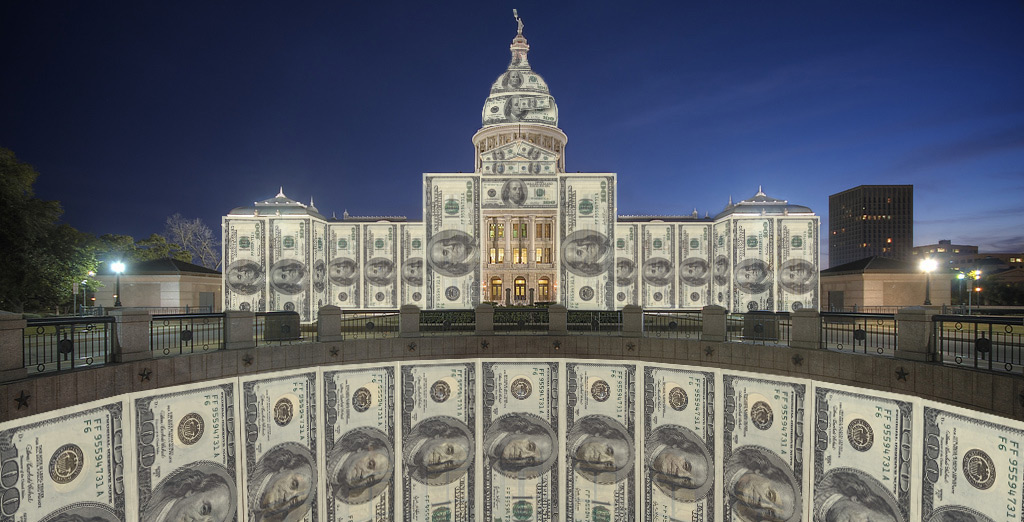Op-eds
Rep. Martin Frost targets Texas for money in politics shenanigans

This op-ed originally appeared in the Texas Tribune.
While former Gov. Rick Perry may be cha-cha-ing on Dancing with the Stars, it’s the cha-ching of the 2016 presidential campaign Texans should remember.
Why? Because high-profile Texans including Perry and Sen. Ted Cruz worked the levers of our broken campaign finance system to the tune of millions of dollars in their race to the White House.
For example, Gov. Perry was supported by more than $13 million from outside groups, including three super PACs, during his short-lived campaign. Similarly, super PACs backing Sen. Cruz displayed fancy footwork as they raised more than $30 million in just one week. These totals may be a drop in the bucket compared to the hundreds of millions of dollars raised by Hillary Clinton and Donald Trump, but there are lessons to glean from failed elections.
First, consider how outrageously expensive running for national office is: In 2012, the average cost of a seat in the U.S. Senate was $10.4 million, or $1.6 million for the House. How do candidates raise that much money? By wearing out a rolodex of deep-pocketed supporters, attending fundraisers sunrise to sunset and cold-calling more donors than a telemarketer. Every hour they do this dance is time they are not spending getting to know voters and constituents.
Former Congressman Tom Davis, R-Virginia, and I addressed this issue in some detail in our recent book, “The Partisan Divide — Congress in Crisis.” We both know quite a bit about this subject since I served as Chair of the Democratic Congressional Campaign Committee for four years and Tom served as chair of the Republican counterpart committee for four years. We both know what it is like to dial for dollars and feel the pressure to prioritize raising money for your party.
Second, party leaders “request” that congressional lawmakers spend at least four to five hours each day raising money by calling donors or attending fundraisers. This means elected representatives in the 114th Congress have collectively spent more than 920,000 hours fundraising. Those are hours not focused on legislation to, for example, combat the Zika virus in Texas and Florida. It also means our broken immigration remains a patchwork of state reforms instead of a unified national policy because lawmakers pay more attention to filling their campaign coffers rather than address our country’s most pressing needs.
If we cannot tamp down money’s influence in our elections and government, then these problems and more — like education and natural disaster preparedness — are doomed to remain political ping pong balls instead of becoming public policy.
Of course, the harsh reality is that most lawmakers do not raise money for the pleasure of collecting checks. The disastrous McCain-Feingold campaign finance law in 2002 prohibited the centering forces in American politics — political parties — from raising so-called “soft money” (which they had to report to the Federal Election Commission). The untouched millions of dollars flowed instead to outside groups, some of which have no reporting requirements, further anonymizing political spending. Today, when coupled with the Supreme Court’s 2010 Citizens United decision, our elected officials are more concerned with fending off well-funded primary opponents and special interests than they are with governing. I know members of the Texas delegation who would be willing to compromise, if not for the threat of an extreme Republican running against them during their next election. This cycle is no different: In races across Texas, candidates have been bolstered and bombarded by a cattle car full of money from outside groups. In just the primary contest featuring incumbent Rep. Kevin Brady, R-The Woodlands, outside groups chipped in more than $345,000.
The system has to change. Our leaders should not be governed by fear of voting for something special interests will attack, but by principled and informed debate. In fact, this crisis facing our elected leaders is why Tom is speaking at the Texas Tribune Festival this week.
Past and current Texan leaders have unanimously spoken about the problems posed by too much money in our politics and government. Former president George H.W. Bush believed that “PACs weaken the parties, restrain competition, and deaden the political debate.” Perry speaks of the “special political class” who spend money to protect their entrenched interests and favors in Washington. Sen. Cruz rarely finishes a stump speech without attacking the “Washington cartel” and its control of bill-making in Congress. Even president George W. Bush, who signed McCain-Feingold into law, said the “complete and immediate disclosure of the source of campaign contributions” is the ideal way to reform campaign finance.
And yet, there are still opportunities for leadership within the political class on this issue, and after the Citizens United decision, voters are anxious for bold proposals that can be enacted now. Congress and the next president could start with the existing bills with bipartisan support proposed in the House that aim to strengthen our election watchdog — the Federal Election Commission — or further guard against foreign donations in our elections.
But Americans should also be prepared to argue for a new jurisprudence from the Supreme Court to undo the damage by the Citizens United and lower-court decisions (like SpeechNow) that have exacerbated dysfunction throughout Washington.
What is missing is not the political intelligence or know-how — but the congressional will to tackle the greatest issue facing our country. If everything really is bigger in Texas, we can start right here with big, bold solutions.
Rep. Martin Frost was a U.S. representative for Texas’s 24th congressional district from 1979 to 2005. He is a member of our ReFormers Caucus.
Issue: ReFormers Caucus
